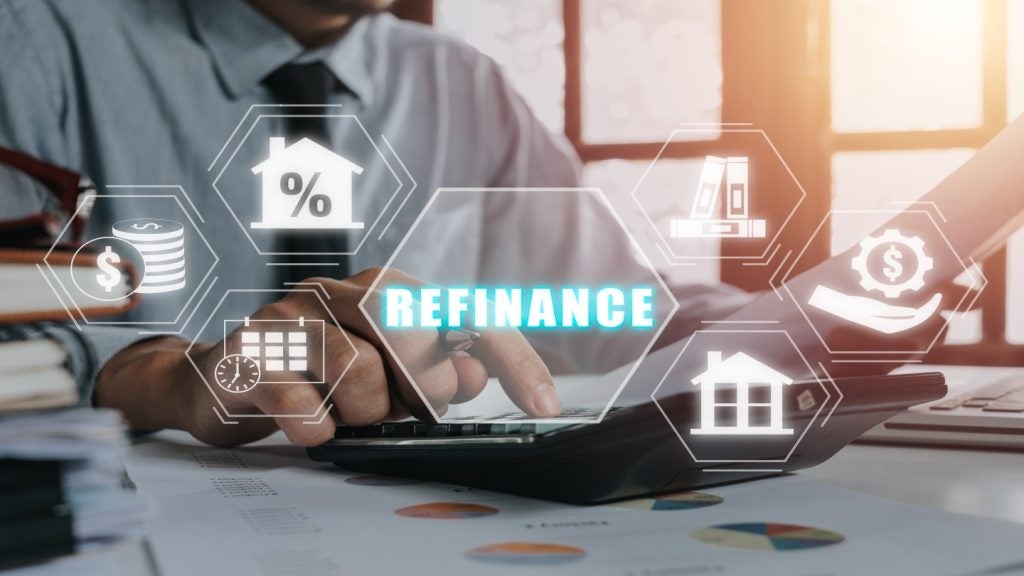
While projected economic growth of 1.5% in 2016 will hardly set Gallic pulses racing, the IMF’s recent observation that there are signs of a cyclical recovery in investment and a bottoming out of the slump in residential construction will have received a more enthusiastic response.
Challenges remain in France – private sector job creation is lacklustre and structural unemployment is projected to remain high in the absence of additional reforms – but the French government has continued to advance reforms to help create the conditions for improved economic performance.
These include the reduction in taxes under the Pacte de Responsabilité et de Solidarité and the Crédit d’Impôt pour la Compétitivité et l’Emploi and the competition-enhancing structural reforms under the Macron Law.
As for budget policies, there are ongoing efforts to contain spending growth at all levels of government while easing taxes.
French companies dominate the 2015 Leaseurope ranking of European leasing companies, with the top two places filled by Société Générale Equipment Finance (including ALD Automotive) and BNP Paribas Leasing Solutions (including Arval).
Between them, these two companies generated in excess of €31bn of new lease business in Europe last year across more than 950,000 contracts.
Crédit Agricole Leasing & Factoring also made it into the Leaseurope top 10 and fellow French companies CM-CIC Bail France and RCI Banque were ranked 11th and 12th respectively, while Natixis Lease came in at number 15.
How well do you really know your competitors?
Access the most comprehensive Company Profiles on the market, powered by GlobalData. Save hours of research. Gain competitive edge.

Thank you!
Your download email will arrive shortly
Not ready to buy yet? Download a free sample
We are confident about the unique quality of our Company Profiles. However, we want you to make the most beneficial decision for your business, so we offer a free sample that you can download by submitting the below form
By GlobalDataYet a comparison of the rate of equipment leasing market penetration conducted for the global leasing report placed France at just 13.1%, and the country was ranked 22nd in terms of annual leasing volume as a percentage of GDP (1.12%).
Françoise Palle-Guillabert, director general of the Association Française des Sociétés Financières (ASF) refers to correlation between investment and leasing and notes that the equipment lease market is showing a better trend than the real estate lease market.
“Since 2014, in terms of production the equipment market has grown steadily and expansion of 14.5% was recorded in the first half of 2016 compared to the same period last year,” he says.
“This recent and strong evolution results in part from the French government, which introduced a tax incentive to support economic activity and business investment. The tax incentive allows companies to amortise 40% more than the initial value of their productive investment in business equipment.”
The possibility to tax deduct 140% of the asset value over the depreciation period has certainly been taken into account when companies are making investment decisions, agrees Julien Ochonisky, managing director of Société Générale Equipment Finance France.
“As the prolongation of this Macron Law measure remained uncertain until April this year [when it was extended until April 2017], it is likely that many enterprises anticipated their investments so as to benefit from the tax credit,” he notes.
“This translated into strong activity, especially for banks who actively promoted the scheme towards their corporate clients. As a result, we believe that growth in the first half of 2016 was not particularly driven by small ticket business, but rather focused on heavier investments.”
Palle-Guillabert observes that real estate leasing decreased significantly in 2015, particularly in the second half of the year when it was down by 21.5%.
“There are several reasons for this. One is the low level of interest rates, which increases competition between leasing and loans, and another is the recent prudential regulation which does not really take into account the low level of risk of leasing. Of course, the situation of the French economy may not be a strong incentive for companies either.”
In an effort to boost real estate leasing, the ASF has been lobbying for the reintroduction of the tax incentive on real estate sales and leaseback that was initially introduced after the 2008 global financial crisis. This incentive enabled clients to spread their tax exposure across the length of the leaseback contract, and boosted production up to €1bn in 2010. The tax incentive ended in 2012, after which production fell by 50%.
According to a Leaseplan spokesperson, operational leasing accounted for just over 60% of the business-to-business fleet vehicles market last year, a figure that was little changed from the previous 12 month period.
“Operational leasing of passenger cars increased by 10.6%, reaching 325,000 vehicles. The market for light commercial vehicles decreased by 5.6% during Q4 2015, with a volume of 32,314 vehicles explained by the extension of the duration of contracts for this segment of vehicles.”
He says the Paris attacks of November 2015 affected business owner confidence, but that their impact on leasing activity seems to have been limited.
“The recovery was already in progress, stimulated by factor such as household consumption and, to a lesser extent, investment by companies. Business investment continues to progress – stimulated by good funding conditions – although companies are being careful regarding the use of their production capacities.”
Access to credit for SMEs improved in the final quarter of last year, according to the Bank of France, with 84% of SMEs obtaining totally or partially the requested funding, against 74% for the proceeding three months. Confidence of business leaders was also higher in 2016, according to the National Institute For Statistics and Economic Studies.
The Leaseplan spokesperson refers to a number of strong competitors playing in their domestic market: Diac (Renault), Credipar (PSA), Arval (BNP Paribas) and ALD Automotive (Société Générale).
“We see more competitive offers for operational leasing, and customer awareness is growing. On the other hand, we still receive many requests from companies and consumers who do not understand the concept of operational leasing.”
To improve business and consumer knowledge of leasing, the company is overhauling its digital content to provide qualitative online content, testimonials and videos.
Development in small-ticket business is still regarded as a relevant strategy for specialists as competition with and between banks is very intense for bigger-ticket items, adds Ochonisky, who describes recruitment and retention of talent as a challenge for both beginners and experienced candidates.
When asked what SGEF is doing to encourage growth in leasing activity in France, he refers to a partnership signed with the European Investment Fund earlier this year, under the competitiveness of enterprises and SMEs programme to provide larger access to finance for SMEs.
“This programme will help us support entrepreneurs in their investment projects and accompany our partners in their commercial activity.”
Francois Guionnet, general manager of RCI Banque Paris subsidiary Diac explains that the used car market has made a significant contribution to the development of lease financing in France.
“The market constitutes significant additional profitability for the distribution networks,” he says.
“This profitability is even more significant for used cars between three and five years old, but sourcing is difficult for dealers since people sell their car out of the regular distribution networks. Therefore, the solution was to promote financial offers with buy back at the end of the contract at 36, 48 or 60 months.”
Guionnet notes that lease financing to individuals significantly increased last year, up by 40% to more than €4bn.
“Standard loan, lease financing and long-term lease customer offers already adopted by big companies are also attracting individual consumers. This is happening in a context where interest rates are low, thus making these offers more and more competitive.”
Alain Escoffier, managing director of BNP Paribas Leasing Solutions France, refers to a significant acceleration in the equipment lease market in 2015. Data from the French Finance Association (ASF), based on its members’ results, indicates a 5.4% increase in new business volume to €23.2bn.
Analysis of the categories of financed asset – regardless of the types of contracts (with or without a purchase option) – shows that growth in the transportation (industrial and commercial vehicles, passenger cars) sector has been particularly strong, rising by 9.4% last year compared to 2014 and reaching €13bn of new business volume for 530,000 financed assets. These results can probably be related to the recovery of the industrial vehicle market in 2015.
New business volumes of ASF members rose by 2.1% with regard to computing and office equipment.
“The types of contract, with or without an option to purchase, experienced a trend reversal in 2015 compared to 2014,” explains Escoffier.
“According to ASF statistics, annual growth in leasing transactions with a purchase option was lower than growth in leasing without a purchase option (+3.2% and +8.3% respectively).”
The real estate leasing market was up 2.1% last year, with ASF member companies recording €4.6bn of new business volume across 1,723 new contracts.
When asked to outline the key factors affecting the French lease market, Escoffier observes that the lease market is closely related to the leasable assets markets.
“For example, in 2015, leasing for agricultural rolling equipment was affected by the drop in sales following the agricultural crisis. The leasing market for technology has to cope with important structural changes as new assets are developed (‘on demand’ software, software as a service, asset as a service), not to mention consolidation and diversification by the market players – manufacturers, software companies and vendors – that are trying to grow outside their current markets.”
The leasing market’s structure is also changing with the emergence of new competitors through financial technology. Platforms leading to disintermediation of traditional business relationships have been emerging.
Interest rates have been very low since 2014 and Escoffier also notes that banking companies are increasingly present with aggressive pricing.
“Furthermore, our partners have new expectations. They ask for more digital solutions and tailor-made services. Their demands are sometimes quite different – asset management on the one hand, low cost on the other hand – so the agility of our IT solutions becomes a key factor.”
On the issue of the extent to which the French government has taken any direct or indirect action to support the finance industry (leasing, hiring and loans) in recent years, the managing director of BNP Paribas Leasing Solutions France mentions that the government recently took a measure in support of leasing as part of the law on economic growth and activity, the Macron law.
“This law had a significant impact on leasing taxation, introducing a favourable tax system for some leased assets acquired or manufactured between 15 April 2015 and 14 April 2017, which is a 40% extra depreciation,” he explains. “In practice, it leads to a deduction of 40% of the fair value of the assets on taxable results, in addition to the usual depreciation.”
This measure applies to SMEs, major industrial companies, artisans who are subject to tax on industrial and commercial profits and farmers and mainly affects industrial equipment (such as agricultural machinery and construction equipment).
In September 2016, BNP Paribas Leasing Solutions became the first French leasing company to offer an online subscription system for leasing contracts with an option to buy. This system enables any professional client of BNP Paribas French retail banking to finance a vehicle without calling on the bank agency.
The company is also working on extending the offers to new assets – only marginally leased or not at all – such as software as a service solutions or 3D printing, and strengthening its presence at trade fairs to raise awareness about leasing.
Escoffier describes the French Finance Association’s statistics regarding members’ results for the first quarter of 2016 as encouraging. New business volume reached €5.7bn, which is 12.3% higher than for the same period last year. The leasing market for professional equipment recorded its best performance since 2011.







